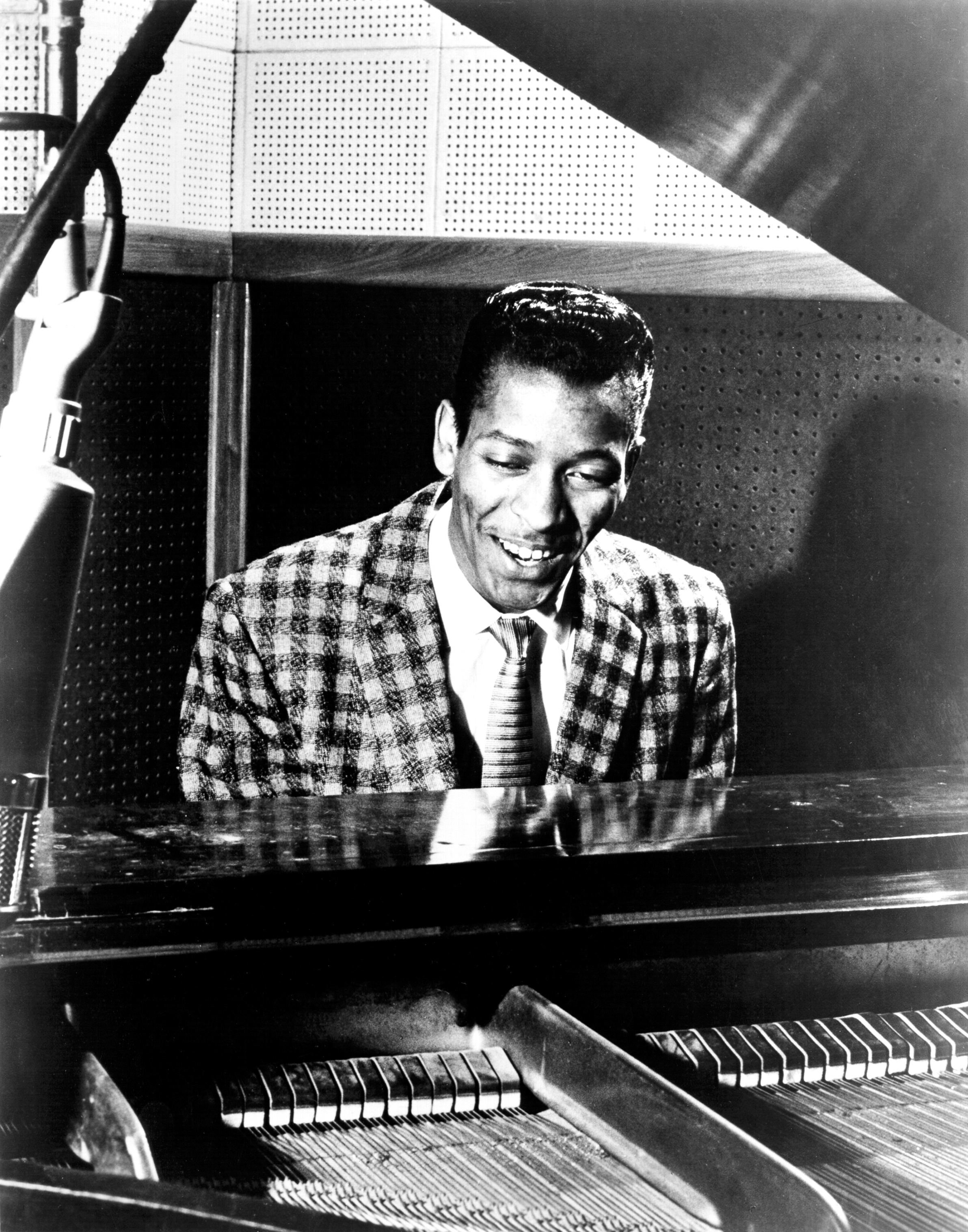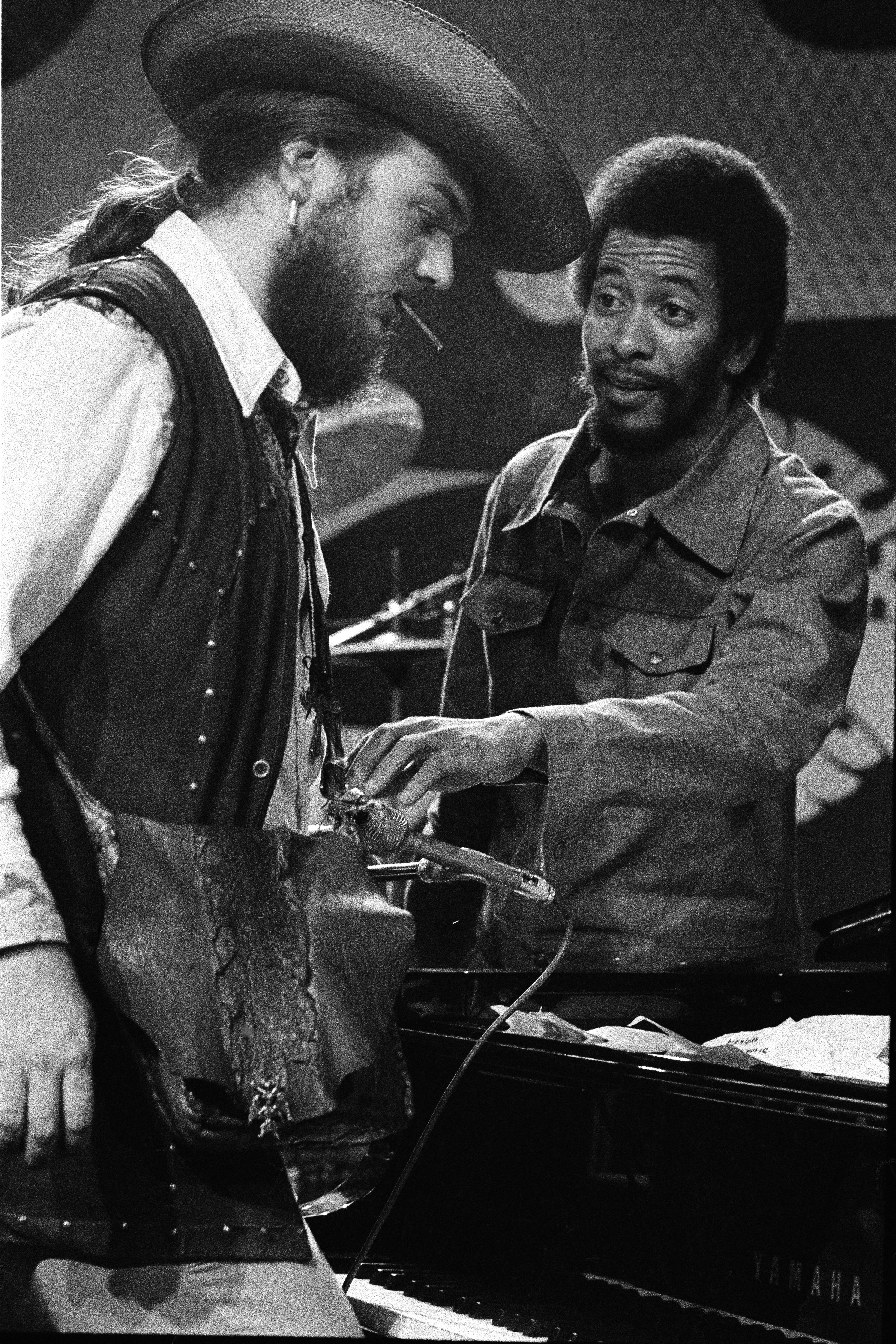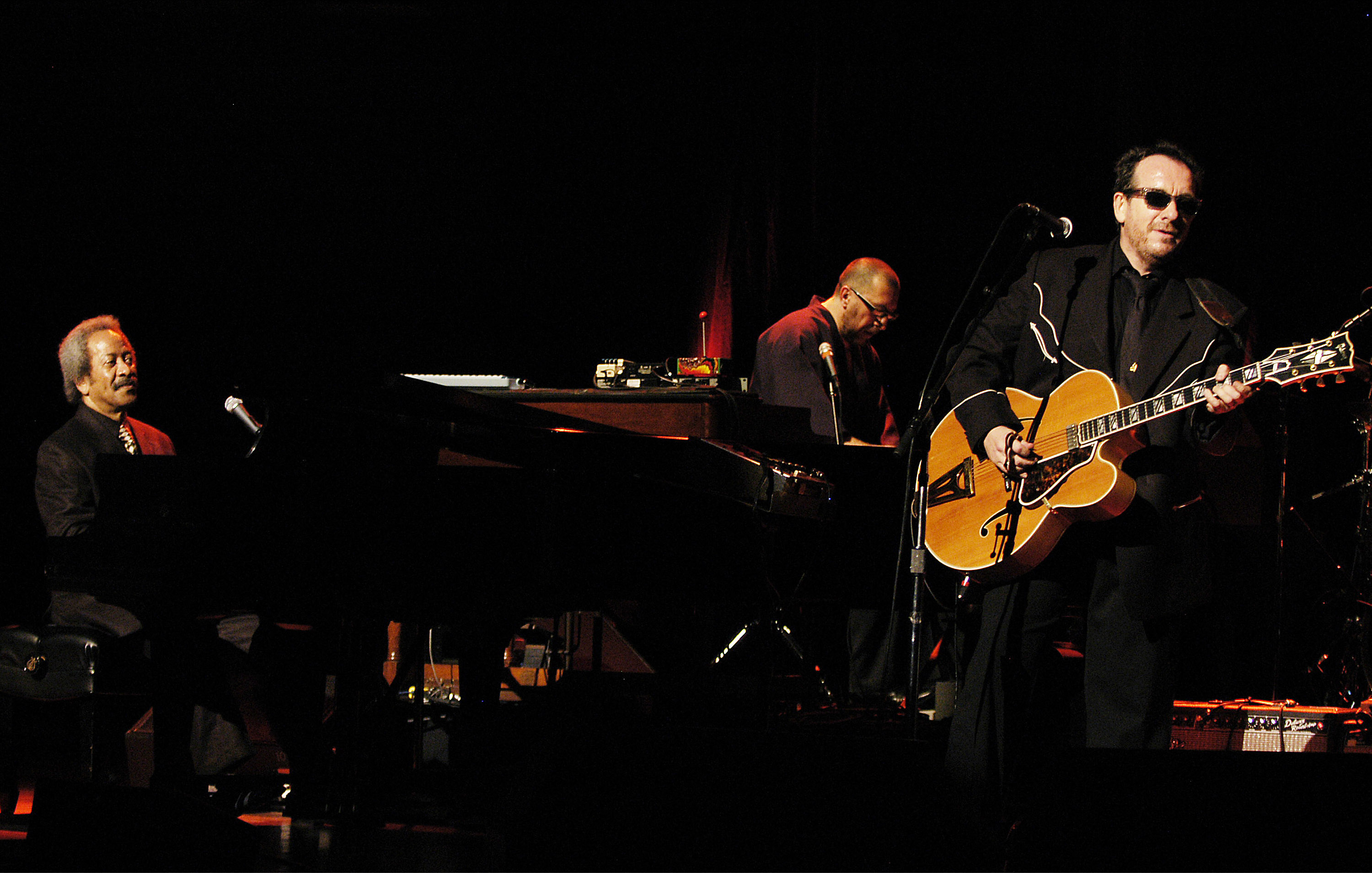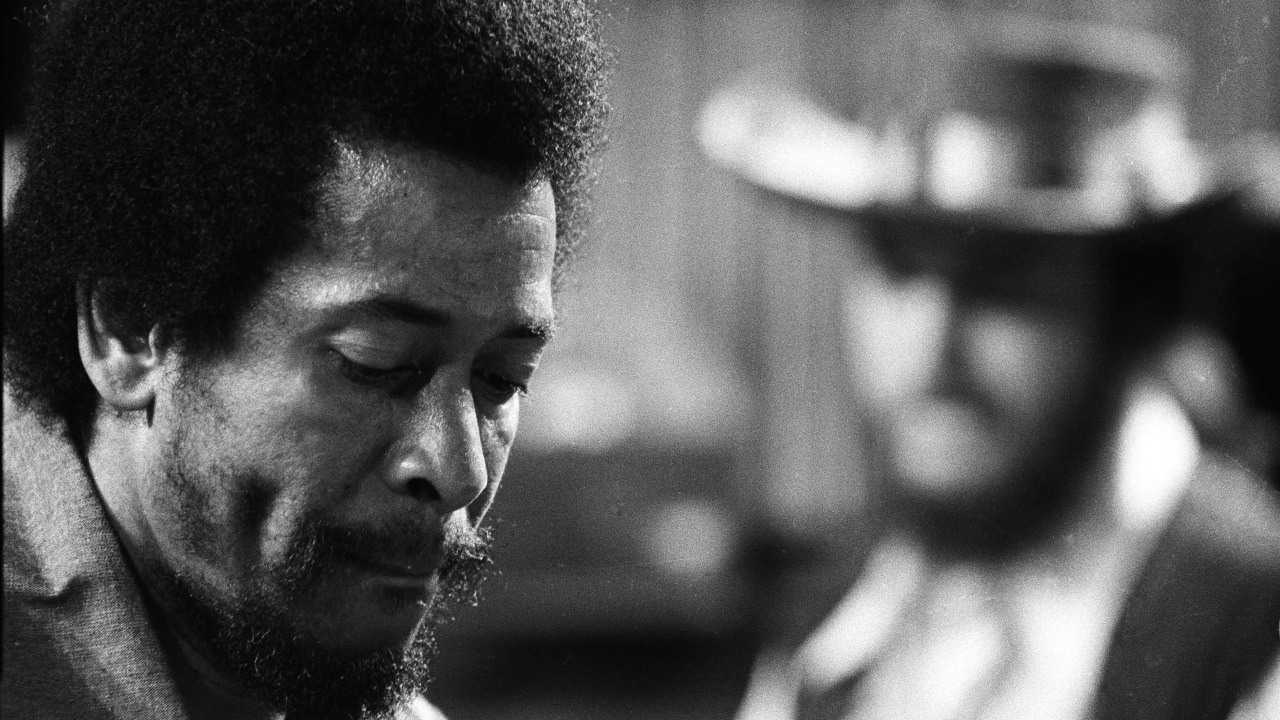In 2005, Hurricane Katrina swept through New Orleans, destroying in its wake the home and studio of Allen Toussaint, 75-year-old producer, singer, pianist, composer and arranger. As a result, the Crescent City native upped sticks to New York and soon after took up a Sunday brunch residency, with just him and his piano, at Joe’s Pub, an intimate sit-down venue at 425 Lafayette Street.
Each week he reacquainted himself with his vast back catalogue in front of a dedicated audience, songs he had written like Brickyard Blues for Frankie Miller, It’s Raining for Irma Thomas, Lipstick Traces (On A Cigarette) for Benny Spellman and Holy Cow for Lee Dorsey. The best bits from two such shows from autumn 2009 make up Toussaint’s latest album, Songbook. It’s an exhilarating work and testament to the singer’s commitment to music making over six decades, something he readily recognises.
“Nothing gave me anything like the pleasure playing the piano and writing and singing gives me. There was never a question of what I was going to do, I was going to be a musician. I knew right away, nothing else interested me, this was a lifetime vocation for me,” he enthuses down the line from New Orleans, where he resides once more.
Born in Gert Town, a poor neighbourhood of the city on January 14, 1938, Allen Toussaint was from a musical family. His father Clarence, a mechanic, had played the trumpet in bands, his mother Naomi was a classical music fan. His early influence, though, was the radio. “I listened to it a lot, they played everything, hillbilly, blues, boogie woogie, gospel. I thought if I was going to be a piano player I had to learn how to do everything and I started to teach myself the popular songs of the day. I attacked it all equally. Of course, later on I learned you had to specialise, you didn’t play it all.”
New Orleans singer and pianist, Professor Longhair (aka Henry Roeland “Roy” Byrd) was also pivotal in his musical education.
“He was so far removed from everything I had heard before, and whichever way he was going, I wanted to go that way too. He played barrelhouse blues but with rhumba and mambo, his right hand played jump up, his left a rhumba, those two worlds had not met before and it made for something very exciting. Then there was the raspiness of his voice, he could sing a note and drop it an octave while in the same syllable, and he took liberties where others would count rigidly. He was bold and off the beaten path.”
But it was a Benny Goodman song, Love Walked In, that inspired him to write his first never-named song aged 10. “I got the bug after that,” he chuckles.
At 13, he formed his first band, The Flamingoes, featuring Snooks Eaglin on guitar. “We were in heaven and we played sock hops, school dances, proms. We’d play out in the countryside in joints we were too young to be in, but we got away with it. It was exciting, there was an air of naughtiness to being a musician, it was considered an insecure profession and parents told their daughters not to date a musician, ‘don’t even look at them’; they didn’t listen, of course.”
Then, at 17, he sat in for Huey Piano Smith alongside the Earl King band at a show in Pritchard, Alabama. “That was the transition from adolescence to the adult world,” says Toussaint. “We met up at the Dew Drop Inn before and after the show. It was New Orleans’ answer to the Cotton Club, where all the serious musicians went. I got to join the house band soon after and that’s where Dave Bartholomew saw me play.”
Dave Bartholomew, a key figure in the sculpting of the New Orleans sound, producing hits for Earl King, Frankie Ford, Smiley Lewis and Fats Domino, approached Toussaint to play piano on Domino’s singles I Want You To Know from 1957 and Little School Girl from 1958 while Domino was performing in Europe.
“He said, ‘just play like Fats’, so I did because I knew all of Fats Domino’s songs, I knew the type of playing they needed. They overdubbed Fats’ voice later and about six months later, Fats saw me in town and said he wasn’t sure if it was me or him playing on the record. That was one of the biggest compliments I could get.”

1958 also marked Toussaint’s recording debut as a solo artist, with the release of The Wild Sound Of New Orleans, an instrumental album on the RCA label under the name Al Tousan. Produced by Murray Sporn and Danny Kesler, it’s most notable for yielding the track Java that, when covered by band leader and trumpeter Al Hirt in 1963, made the US pop Top 5.
It was on teaming with Joe Banashak at the Minit label, though, that Toussaint started to stamp his imprint both on the local and national music scene. “It was a wonderful time,” he recalls. And a very creative one, too. In 1960 he produced Jessie Hill’s Ooh Poo Pah Doo, a raw, wild slice of R&B for the label. It hit both the US R&B Top 5 and pop Top 30, impacted in the UK – The Who, as the High Numbers covered it in their live set – and that saw Toussaint write and produce an impeccable series of 45s – classics like Ernie K Doe’s 1961 US R&B and pop Number 1 Mother In Law, Benny Spellman’s 1962 Lipstick Traces (On A Cigarette) and the same year’s Irma Thomas’ It’s Raining – that laidback and rolling, forged the New Orleans sound.
“Ooh Poo Pah Doo and Mother In Law got me started then I wrote Lipstick Traces (On A Cigarette) for Benny Spellman for the one line that sounds like Mother In Law, because Benny provided one of the voices as a boy on that original song.”
Providing Spellman with his only US R&B Top 30 hit, it was actually Lipstick Traces’ B-side, Fortune Teller, an enticing R&B stroller, that caught the imagination, being covered by everyone from the Stones, The Hollies and The Who to more recently Robert Plant and Alison Krauss on their 2007 album Raising Sand.
“We needed a B-side so I wrote Fortune Teller, I built it around one chord, it was very simple, I never thought it would have longevity,” he says.
As for working with Irma Thomas: “Every time I wrote for her, it was like magic, her interpretation was always perfect. I remember writing It’s Raining for her and I played it on the piano and sang it to her then she sang it back to me as I played and it sounded like she had written it herself, it fitted her voice and her style so perfectly. Same with Ruler Of My Heart.” Otis Redding would later cover Ruler Of My Heart as Pain In My Heart. “He did a great version,” says Toussaint.
It was the New Orleans singer Lee Dorsey though who perhaps benefited most from Toussaint’s songbook. Dorsey, a former car mechanic and boxer who fought under the sobriquet Kid Chocolate, first collaborated with Toussaint in the late 50s at Banashak’s Valiant label and then at Bobby Robinson’s Fire & Fury, but it was at the Amy label from 1965 that the pair hit their creative stride with that year’s *Ride *Your Pony, a US R&B Top 10 hit, that inspired a mod dance based around mimed pistol shooting. That same year also saw the release of the superb Get Out My Life Woman which went Top 5, then came 1966’s Working In A Coalmine, another Top 5 and Holy Cow, which hit the Top 10. Both pushed things forward pioneering the syncopated rhythms of New Orleans funk.
“I first met Lee Dorsey in 1958. Harold Baptiste was producing and arranging him and he needed a piano player to back Lee on his single Lottie Mo. Then through Marshall Sehorn, his manager, I got to be his permanent writer. By this time he was at Fire and Fury [Sehorn was A&R at Fire and Fury). I’d write a song on the piano, he’d come to the studio, I’d play it to him and sing it to him and he would copy it directly. Sometimes I’d record it on tape and give it to him so he could take it home and learn it. He trusted me for every nuance and moment in the recording and I had an equal amount of faith in him as well.”
The pair also struck up a friendship outside the confines of the studio.
“We spent a lot of time together and had a lot of fun together, he was a very high spirited guy. We’d go to eat, go to night clubs, we rode motorcycles together. There was a smile on his face and in his heart at all times.”

By this time, Toussaint had launched his own label, Sansu Enterprises, with Marshall Sehorn and, in 1973, Toussaint and Sehorn built their own Sea-Saint studio. They recruited The Meters as their house band in 1966, who would go on to release a series of genre defining albums under their own name, that produced by Toussaint, were bookended by 1969’s self-titled debut for Josie and 1976’s Trick Bag on Reprise.
“It was a very exciting time to be in the studio, because music had moved from R&B to funk, and everything The Meters did was heavily syncopated, and really encapsulated the New Orleans sound of the time. They weren’t repeating history, they were making history.”
The Meters provided the backing to Dr John’s 1973 Toussaint-produced In The Right Place and 1974’s Desitively Bonnaroo albums. Toussaint and Dr John had first met when they were in their teens, recording sessions together, Toussaint providing piano, Dr John guitar. “He got that real down-home sound,” says Toussaint. “The way he walks and talks, that’s the way his life is. He knows where he is at all times, knows where he’s going, nothing pretentious, he’s true meat and potatoes all the way.”
Toussaint also teamed with The Meters on Labelle’s 1974 Nightbirds album for the Epic label. Capturing the Philly trio in New Orleans, the album was a transfixing mix of R&B, disco and rock with a colourful splash of Mardi Gras.
“Labelle opened our minds. I was just overwhelmed by this wonderful sense of theatre in their music, they had energy and intellect but never sacrificed the funk and Patti Labelle had this asphalt voice that just soars into heaven and Nona Hendryx, she was a superb writer, quite unlike anyone else I’ve ever known. They were so polished and it was obvious the production had to be on a larger scale, it needed a larger sound than I was used to creating.”
The album spawned their signature hit Lady Marmalade, but also of equal importance the social statements, Are You Lonely? and What Can I Do For You?
Toussaint himself had captured the essence of the changing political times with songs like* *Yes We Can, Who’s Gonna Help Brother Get Further and Freedom For The Stallion. “I wasn’t one to wave a flag or a fist but I was innately reaching out. Musicians were already integrated in the studio, black and white were working together, so we didn’t feel the brunt of it like other parts of the US, but things still needed to be said.”
Concurrent to his behind the scenes work, Toussaint also stepped centre stage with 1970’s second solo album Toussaint. A brilliant record, recorded at Dimension Sound Studios in LA, with Dr John on organ and Merry Clayton and Venetta Fields on background vocals, it featured the powerful, tortured soul of From A Whisper To A Scream plus renditions of Working In The Coal Mine and Everything I Do Gohn Be Funky.
“There was no transition from back room to centre stage for me,” he explains. “It wasn’t a big deal. I never thought about it like that every record I made was at someone’s request. I got asked to record a solo record and it was just another project to do, I did it and then moved on to the next job.”
The next jobs included follow-up solo albums, Life, Love And Faith in 1972 and 1975’s Southern Nights, the latter’s title track, when covered by Glen Campbell in 1977 hitting the US top spot. Toussaint continued to add to his CV over the next three decades, as musical director on Vernel Bagneris’ off Broadway play *Staggerlee *in 1985, at the helm of NYNO Records which he launched with Joshua Feigenbaum in the early 90s and with Elvis Costello on their 2006 collaboration The River In Reverse.
“It was a luxury working with Elvis Costello, he is such a lover and respecter of music of all genres. He doesn’t just like the hits, he likes the most obscure songs, he searches them out, he’s not only into the A sides and the B sides but he’s into the C, D, E, F and G sides, too. He’s a wealth of information, his playing is superb, he’s a team player and will share the stage with everyone

Its follow up, 2009’s The Bright Mississippi, produced by Joe Henry (who also worked with Solomon Burke and Bettye Lavette), meanwhile, saw Toussaint deliver a set of blues and jazz standards. “Joe Henry came with the idea, he chose the musicians, the place to record, the time to record, the songs, he did everything but play the piano.* St* James Infirmary, I’d never played that song in my life, I knew it of course, it seemed like every band I came across was playing that while I was growing up and when I sat down to play it, I just played it from scratch.”
The following year, he guested on Eric Clapton’s Clapton album, contributing piano to covers of Fats Waller’s My Very Good Friend The Milkman and When Somebody Thinks You’re Wonderful, then in 2012 he was inducted into the Songwriters Hall of Fame.
On July 10 last year he was awarded the Medal Of Honor For The Arts by President Obama at the White House.
“That is the high point of my career,” he says proudly. “President Obama was the best host, and it was a two-day event and the marine officer’s band played the cocktail party. They did a couple of my songs and the conductor asked me to come over and sit in and I did.”
After scoring a ballet with full orchestra also this year,* The Blues* wonders, is there anything left for this renaissance man still to achieve? “Oh yes,” he enthuses.
“I’d like to do a classical record, but you know what, if I just get to continue doing what I’ve been doing from the beginning I’ll be happy.”
And so will The Blues.
